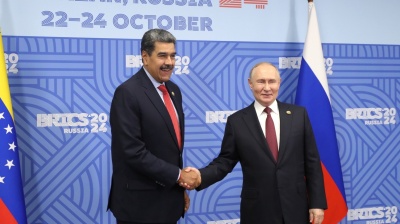Meeting expectations, the National Bank of Poland (NBP) raised its reference rate by 50 bps to 2.25% on January 4. The market is anticipating further tightening of monetary policy in 2022.
The hike was the fourth in as many months, as the NBP is striving to contain surging inflation, which shot up to 7.8% y/y in November, the highest point in 20 years.
The NBP said that inflation is on the rise due to the spiking global prices of commodities – including energy and agricultural commodities – observed in the second half of 2021.
The central bank also pointed to “record high increase in prices of CO2 emission allowances, rising prices of goods whose supply has been constrained by global pandemic disruptions, as well as earlier increases in electricity prices and in waste disposal charges.”
Looking forward, inflation is expected to remain high amidst Poland’s ongoing economic recovery, including demand driven by household consumption.
“These factors, together with a rise in regulated tariffs on electricity, natural gas and thermal energy will contribute to inflation remaining at an elevated level also in 2022,” the central bank said.
That means more hikes are on the cards, analysts say.
“The NBP has become more concerned about rising inflation expectations of households and these fears are likely to persist,” Capital Economics said in a comment.
“We expect another 75 bps of rate hikes, to 3% this year. But with inflation now set to peak at a much higher level and significant wage pressure from the tight labour market threatening to ignite a wage-price spiral, the risks are arguably skewed towards even further tightening,” the London-based consultancy added.
Some other analysts predict even more tightening.
“We expect the NBP to lift the key rate by another 50 bps to 2.75% at its next meeting in February. We see the key rate at least at 3.25% by mid-2022. In our view, the NBP could further increase the rates in 2H22 such that the key rate would reach 4% by the end of 2022,” Erste said.
The Polish central bank used to the most dovish in Central Europe but now Polish rates are higher than in Czechia and Hungary.
Inflation is surging in Central Europe amidst a debate over whether it is caused more by internal or external factors and therefore whether it will be short and long term and to what extent it can be affected by national central banks.
There is also a debate as to what extent governments should now tighten fiscal policy following the increase in budget deficits to fight the effects of the COVID-19 pandemic.
On top of macroeconomic considerations, inflation has also become a political problem for the ruling radical rightwing Law and Justice (PiS) government, which has mooted an anti-inflation package of tax cuts and cash handouts to low-income households recently.
The CPI is now expected to reach 4.8-%-4.9% in 2021 versus the previous outlook of 3.8%-4.4% that was published in July. After that, the NBP predicts inflation at 5.1%-6.5% in 2022 (2.5%-4.1% in the previous outlook) and 2.7%–4.6% in 2023 (2.4%–4.3%)
Economic growth is expected at 4.9%-5.8% this year, a slight pick-up against 4.1%-5.8% in the July outlook. Economic expansion will come in at 3.8%-5.9% in 2022 (compared to 4.2%-6.5% expected in July) and 3.8%–6.1% in 2023 (4.1%–6.5%).
News

Turkish state grabs another fintech as company seizures continue at pace
Turkey first seizes companies, then tries the suspects. Some companies are sold before the trial process.

Ukraine’s elite HUR forces turn the tide in the battle for Pokrovsk, as Russia’s effort to capture key logistics hub fails
The battle for Pokrovsk became intense early on November 1and it looked like the fall of the key logistics hub to Russia was imminent. But a bold counterattack by Ukraine’s elite HUR forces seems to have turned the tide.

US prepares attack on Venezuela as Maduro begs Putin for aid
The Trump administration has reportedly drawn up a list of potential military targets within Venezuela as part of its intensifying pressure on President Nicolás Maduro, who has turned to Moscow seeking urgent military assistance.

Bulgaria suspends fuel exports to EU after US sanctions Lukoil
Bulgaria has temporarily suspended exports of petroleum products to European Union countries after the United States imposed sanctions on Russian oil giant Lukoil.




